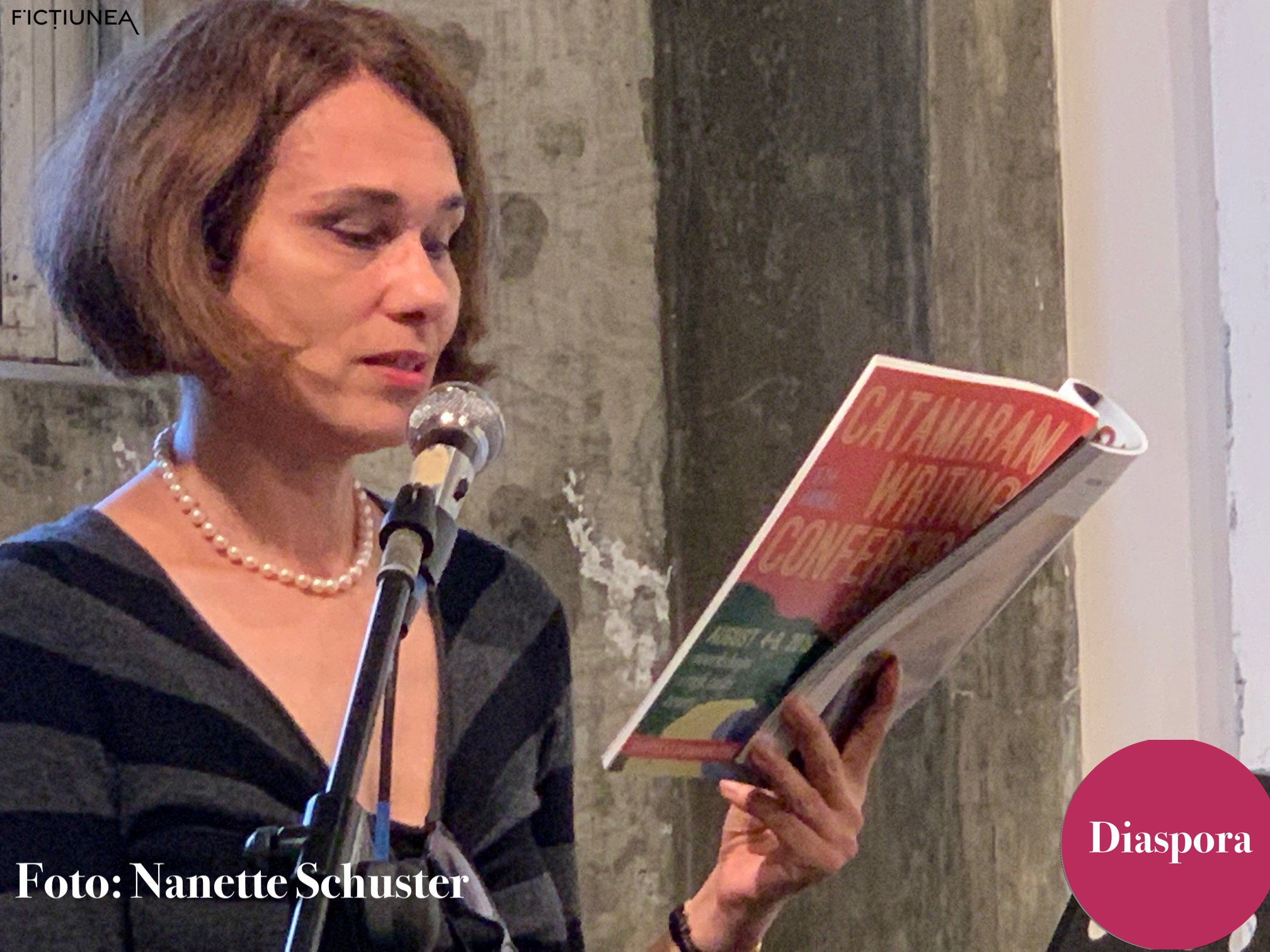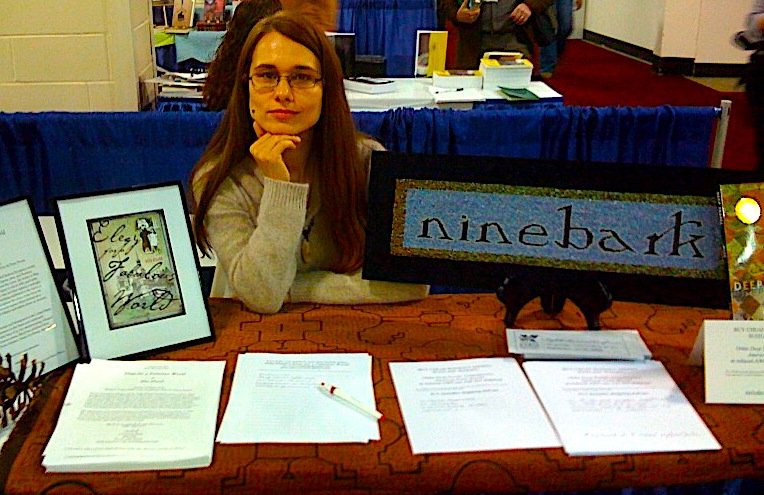
Șerban PAVLU

Revistă print și online

Omul între ghilimele
Era un om între ghilimele. Altfel spus, corpul său ocupa un spațiu flancat de o parte și de alta de un semn mare, gras și buclat. Bucle jos la stânga, bucle sus la dreapta. Când respira, buclele fâlfâiau sub respirația sa, surprinse că irealul, asupra căruia vegheau, pulsa cu atât de multă viață. Când vorbea, cuvintele sale nu puteau fi legate de vreun loc real, ci păreau să provină din ele însele, precum un organism unicelular reproducându-se prin diviziune intracelulară. Toate erau între ghilimele. Visele sale erau și ele între ghilimele. Erau vise visate de milioane de alți oameni înaintea sa și cel mai probabil că și după el. Totul despre el era repetare, iar tot ce este repetat trebuie, conform cărților de gramatică, pus între ghilimele. Și totuși, era ceva irepetabil, unic în felul în care respira. Ceva ce le nedumerea mereu pe ghilimele, înzestrându-le cu o dorință de a zbura cât mai departe și de a-l lăsa în singurătatea sa unică.
A vorbi o limbă străină
Cândva, știam o femeie care putea vorbi doar într-o limbă străină. Adică, pentru ea, limba era un corp care, dacă era prea aproape de ea, lua forma unei bestii cu un singur ochi, primitive, posesive și nebune. De aceea, când vorbea, trebuia să se îndepărteze cât putea de mult de bestie, de ghearele sale pe care sângele strămoșilor ei picura, lipicios, negru, radiind otravă mămoasă. De aceea, când vorbea, devenea atât de ușoară încât cuvintele ei puteau veni numai dintr-un corp aproape inexistent, imaterial, orfan, ai cărui strămoși erau numai oceanul și aerul. Oceanul, a cărui sare plutește în sânge, și aerul, care nu e nimic, precum – într-o zi – și corpul nostru.
Trandafirul fără minte
"Trandafirul nu are motiv,
înflorește fiindcă înflorește, (...) nu dorește să fie văzut."
– Angelus Silesius
Trandafirul fără minte simte că tot ce se îndreaptă înspre cer nu are motiv să se înalțe însă în sezon sau nu trandafirii înfloresc neîncetat și fără sens. Se înfig și plâng sprijinindu-se de copaci cu rădăcini adânci pe când mări dezlănțuite se devarsă peste maluri dezgropând oase din somnul lor prelung. Parfumul lor are mireasmă de ceai sorbit încet în după-amiezi însorite la malul mării în camere închiriate cu rafturi de cărți pe unde șobolanii rătăcesc liberi ca șoarecii de bibliotecă – "un rat de bibli" – și ei fără scop și fără sens până în ziua testelor. Dar chiar și trandafirul fără minte crește, ce-i drept, pentru nasul care-l simte.
Lacrimi de țestoasă
"Nu mai da apă șoarecilor!" obișnuiau să ne spună în limbajul abandonat. Ori: "plânge cu lacrimi de țestoasă". Sau era "cu lacrimi de crocodil"? Lacrimi de crocodil ne curgeau pe obraji în timp ce ne mâncam supa aburindă de țestoasă piperată. Si ne mai spuneau : "Nu are rost să plângi pentru ziua de ieri". Și totuși plângeam, iar și iar, pentru ieri și pentru supa de țestoasă vărsată, mâncam și plângeam, plângeam și mâncam supa aburindă de țestoasă piperată și ne strângeam lacrimile de crocodil în poșete elegante de aligator în timp ce șoricei se îmbăiau în apa lacrimilor noastre. Până să terminăm de mâncat, noi înșine deveniserăm mici țestoase înfășurate în cochilii perfect rotunde. Eram carcase de țestoasă strângând lacrimi în zile ploioase când norii plângeau pentru ziua de ieri și de mâine, deși nu avea nici un rost. Fără rost să plângi pentru ploaia vărsată, însă norii plângeau iar și iar cu lacrimi de crocodil șiroind pe case și copaci, puse la păstrare pentru zile negre în carcasele noastre părăsite de țestoasă. Și ne tot mâncam supa aburindă de țestoasă piperată în zilele albe născute din lacrimile noastre nesfârșite de țestoasă.
Trad. Florin Buzdugan & Alta Ifland.

The Man in Quotation Marks
He was a man in quotation marks. That is, his body occupied a space flanked on each side by a big, fat, curly quotation mark. Upward curls on the left, downward curls on the right. When he breathed, the curls fluttered under his breath, puzzled that the unreal, of which they were the guardians, pulsed with so much aliveness. When he spoke, his words could not be attached to any real place, but seemed to emerge out of themselves, like a unicellular organism reproducing through inner cellular division. They were all in quotation marks. His dreams were in quotes too. They were the dreams dreamt by millions of others before him, and very likely after him. Everything about him was repetition, and everything repeated is, according to grammar books, subject to be put in quotation marks. Yet, there was something about the way he breathed that was unrepeatable, unique. Something that puzzled the quotes again and again, infusing them with a wish to fly away and leave him naked in his unique aloneness.
Speaking a Foreign Language
I once knew a woman who could only speak a foreign language. That is, language was for her a body that, if too close, took the shape of a primitive, possessive, one-eyed, moon-struck beast. That’s why, when she spoke, she had to move as far away as she could from the beast, from its claws on which the ancestors’ blood dripped, sticky, dark, radiating motherly poison. That’s why, when she spoke, she grew so light that her words could only come from an almost nonexistent body, an immaterial, orphan body, whose only ancestors were the ocean and the air. The ocean, whose salt flows in the blood, and the air, which is nothing, like—some day—our body.
The Reasonless Rose
“The rose is without why, it
blooms because it blooms, (…) it has no wish to be seen."
--Angelus Silesius
The reasonless rose knows that all that soars has no reason to rise yet in season or not roses relentlessly thrive less than reasonably. They seep and weep resting solely on trees with roots reaching deep as rampant seas rise to the shores ransacking bones from their ageless sleep. Their smell is redolent of tea slowly sipped in rented rooms with rows of bookshelves on sunny afternoons by the sea, where rats roam freely like bookworms—“un rat de bibli"—they too reasonless and quite pointless until lab day. But even the reasonless rose grows, alas, for another one’s nose.
Turtle Tears
“Stop giving water to the mice!" they used to tell us in the abandoned language. Or else: “crying with turtle tears." Or was it “crocodile tears"? Crocodile tears streamed down our cheeks as we ate our peppery-hot, steamy turtle soup. They also told us: “No use crying for yesterday." Yet we cried, again and again, for yesterday and over spilled turtle soup, we ate and we cried, we cried and we ate our peppery-hot, steamy turtle soup, and collected our crocodile tears in elegant alligator purses, while mice bathed in the bathwater of our tears. By the time we finished eating, we had ourselves become little turtles wrapped in perfectly round shells. We were tortoise shells collecting tears on rainy days, when the clouds cried for yesterday and for tomorrow, though it was no use. No use crying over spilled rain, but the clouds cried again and again with crocodile tears streaming down houses and trees, and saved for dark days in our abandoned turtle shells. And we kept eating our peppery-hot, steamy turtle soup in the light days born of our unending turtle tears.
Poeziile sunt extrase din volumul The Snail’s Song (Cântecul melcului), New York: Spuyten Duyvil, 2011.
Alta s-a născut, a crescut în România și a emigrat în Statele Unite în 1991, unde a obținut un doctorat în limba și literatura franceză, iar acum trăiește în California. Poetă și prozatoare de expresie engleză, Alta Ifland a publicat patru cărți de poeme în proză și de povestiri, dintre care - Voix de glace/Voice of Ice (publicată în fr. și eng.) a primit Premiul Louis Guillaume. Are în lucru un roman.